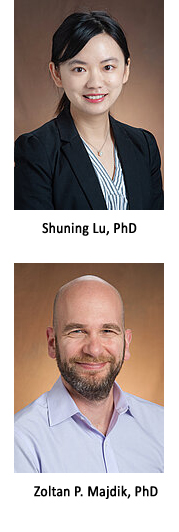NDSU to conduct computational social science institute this summer

NDSU will host a Summer Institutes in Computational Social Science (SICSS) event from June 19 – June 30, 2022. NDSU assistant professor of communication Shuning Lu will lead the two-week program in collaboration with NDSU associate professor of communication Zoltan Majdik. NDSU is one of only seven universities in the United States (along with Duke University, University of Pennsylvania, Rutgers University, University of Rochester, Georgia State University, and Howard University) to hold the summer workshop in 2022.
The Institute will cover a wide variety of topics, including text as data, web-scraping, digital field experiments, machine learning, and ethics. Utilizing in-person and self-paced online lectures, group problem sets, and participant-led research projects and featuring speakers who conduct computational social science research in a variety of disciplines, the Institute aims to train young researchers about how social science and data science intersect.
Lu and Majdik plan on inviting approximately 20 participants. Attendees must be graduate students, postdoctoral researchers, or early-career faculty from any background or field of study. Industry practitioners who are interested in data science and social science are also welcomed to apply.
Lu says, “There will be ample opportunities for participants to discuss their ideas and research with the organizers, other participants, and visiting speakers.” She notes there are many additional values of the program including long term benefits to NDSU. “While instructional materials from SICSS workshop will allow faculty across NDSU departments to embed computational social science in our curricula, we also hope it will result in sustained cross-disciplinary collaborations.”
Majdik adds, “The Fargo-Moorhead area has a growing tech infrastructure – a large Microsoft campus, various tech incubators, and agricultural companies – that are increasingly tech-driven along with a fast-growing biomedical technologies industry.” He hopes that hosting an SICSS partner site would make these local communities more visible to each other and nurture collaboration while bringing voices from this area into the larger academic community of computational social science researchers.
All materials created by faculty and students during the Institute will be released as open source.
The Institute is supported in part by a grant from the Social Science Research Council (SSRC). “The Social Science Research Council has spent nearly a century in the forefront of supporting innovative and impactful work in the social and behavioral sciences,” commented NDSU vice president of research and creative activity Colleen Fitzgerald. “NDSU’s existing strengths in these disciplines means we are well-positioned to leverage the Institute’s training, including in campus convergence initiatives.”
In its fifth year of operation, SICSS works to provide scholars with the opportunity to develop research collaborations. The organization identifies its main goals as accelerating the growth of the field and ensuring that practices developed within it are in the long-term interests of science and society.
The deadline for applying is April 10. For more information and to apply to the SICSS event, see https://sicss.io/2022/ndsu/apply
A flyer about the event is also available to download and share.


